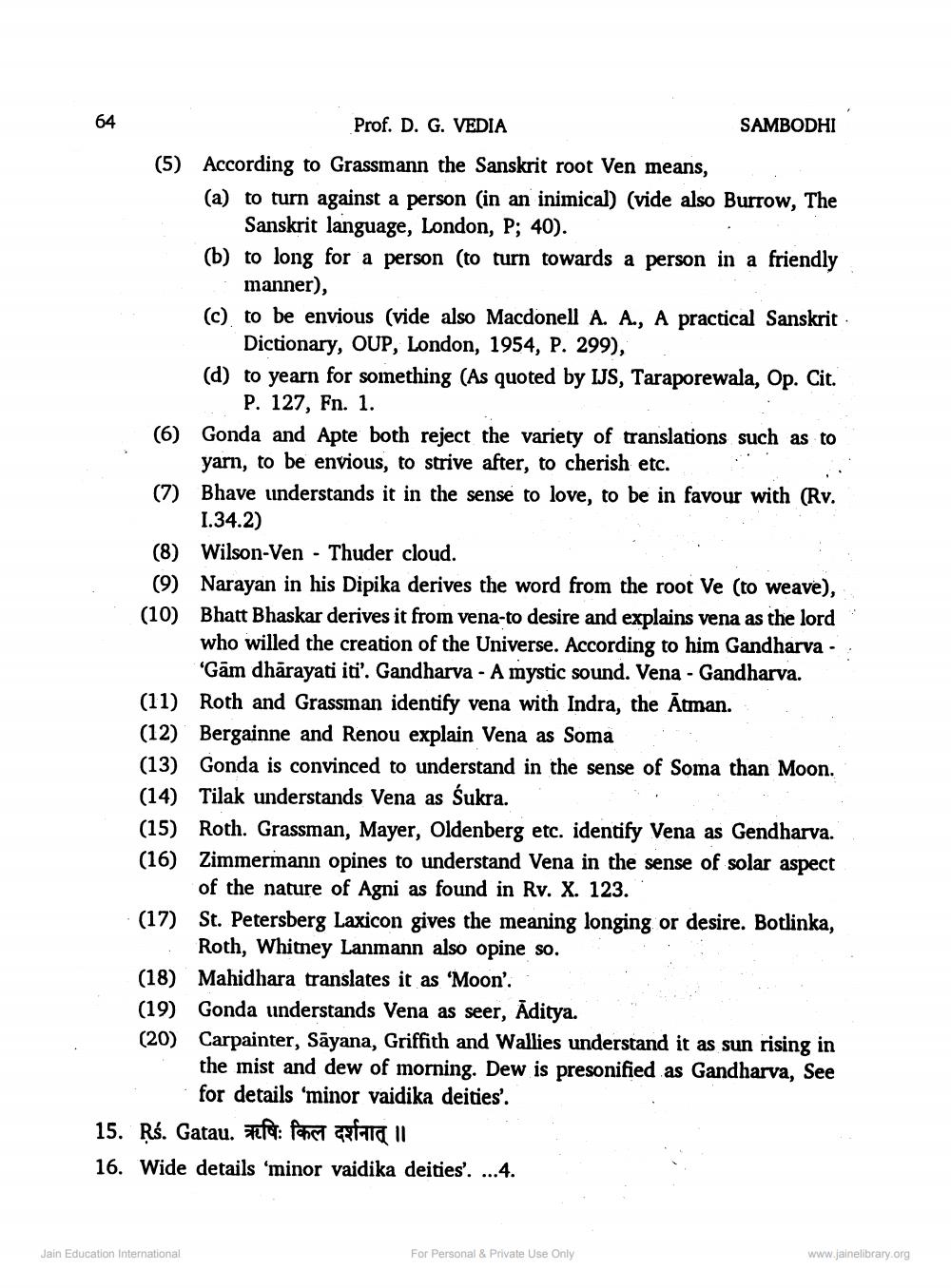________________
64
Prof. D. G. VEDIA
SAMBODHI (5) According to Grassmann the Sanskrit root Ven means, (a) to turn against a person (in an inimical) (vide also Burrow, The
Sanskrit language, London, P; 40). (b) to long for a person (to turn towards a person in a friendly
manner), (c) to be envious (vide also Macdonell A. A., A practical Sanskrit
Dictionary, OUP, London, 1954, P. 299), (d) to yearn for something (As quoted by IJS, Taraporewala, Op. Cit.
P. 127, Fn. 1. (6) Gonda and Apte both reject the variety of translations such as to
yarn, to be envious, to strive after, to cherish etc. (7) Bhave understands it in the sense to love, to be in favour with (Rv.
I.34.2) ) Wilson-Ven - Thuder cloud. (9) Narayan in his Dipika derives the word from the root Ve (to weave), (10) Bhatt Bhaskar derives it from vena-to desire and explains vena as the lord
who willed the creation of the Universe. According to him Gandharva ,
"Gām dhārayati iti'. Gandharva - A mystic sound. Vena - Gandharva. (11) Roth and Grassman identify vena with Indra, the Atman. (12) Bergainne and Renou explain Vena as Soma (13) Gonda is convinced to understand in the sense of Soma than Moon. (14) Tilak understands Vena as śukra. (15) Roth. Grassman, Mayer, Oldenberg etc. identify Vena as Gendharva. (16) Zimmermann opines to understand Vena in the sense of solar aspect
of the nature of Agni as found in Rv. X. 123. (17) St. Petersberg Laxicon gives the meaning longing or desire. Botlinka,
Roth, Whitney Lanmann also opine so. (18) Mahidhara translates it as 'Moon'.(19) Gonda understands Vena as seer. Aditya. (20) Carpainter, Sāyana, Griffith and Wallies understand it as sun rising in
the mist and dew of morning. Dew is presonified as Gandharva, See
for details 'minor vaidika deities'. 15. Rś. Gatau. #fa: fonet astara 11 16. Wide details ‘minor vaidika deities'. ...4.
Jain Education International
For Personal & Private Use Only
www.jainelibrary.org




